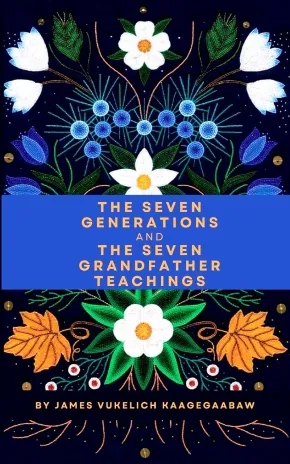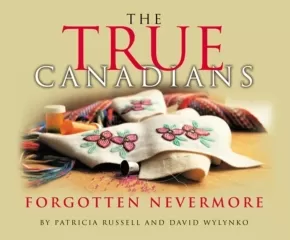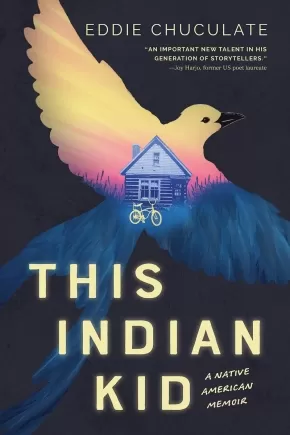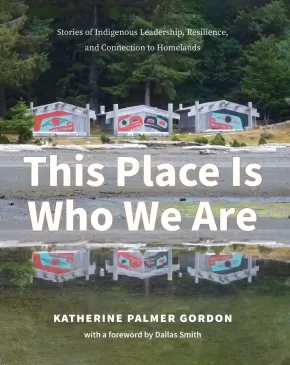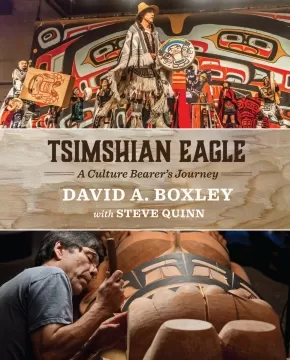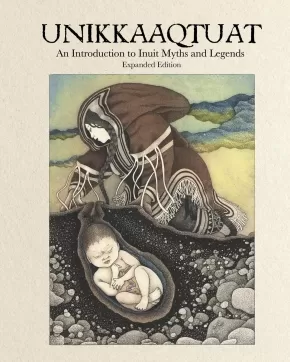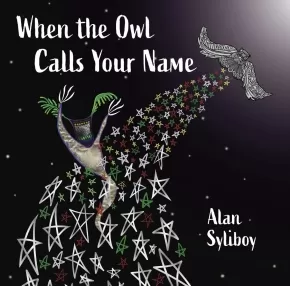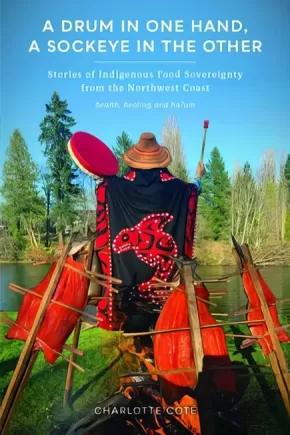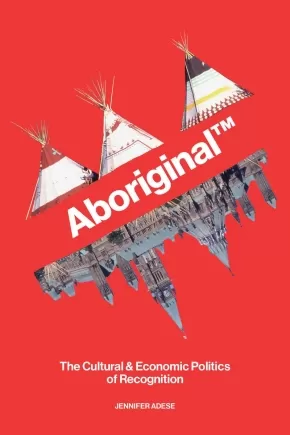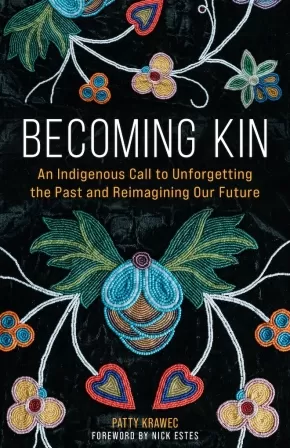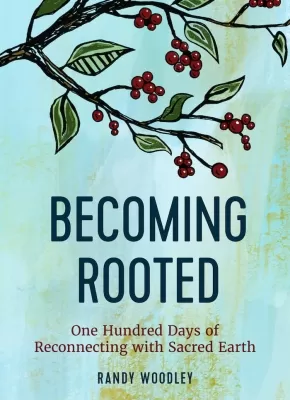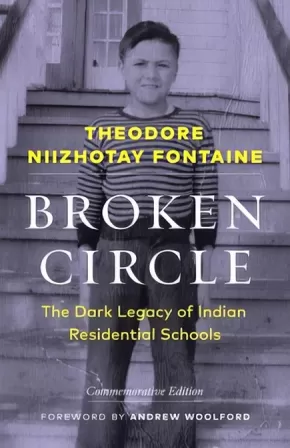
Indigenous Peoples
151
-
165
of
441 Results;
Sort By
Go To
of 30
The Scarf and the Butterfly: A Graphic Memoir of Hope and Healing
$24.95
Artists:
Format:
Hardcover
Text Content Territories:
Indigenous Canadian; Inuit;
ISBN / Barcode: 9781774506523
Synopsis:
Synopsis:
“’There’s an opening above me, but it’s far, and I have to stack up rocks to jump up, and it’s almost impossible to get out.’ That’s when I realized that I was stripped of my identity, and there was nothing of my culture left in me. It was like I wasn’t in my body anymore. It was bare and desolate and empty and cold, lifeless in my body. Where was I? Where had I gone?”
In this visceral graphic memoir, Monica Ittusardjuat brings readers with her from residential school classrooms to government apologies on her journey to rediscovering what it means to be Inuk. Born prematurely in an iglu on Baffin Island, Monica attended three residential schools over eleven years. She details her resulting struggles with addiction, mental health, and domestic violence, which haunted her into adulthood.
Equal parts heartbreaking and hopeful, Monica’s memoir is a testimony to the lasting impacts of residential schools and one woman’s fight to reclaim what she lost.
The Scarf and the Butterfly is a stunning new addition to Qinuisaarniq ("resiliency"), a collection of books created to educate readers about the history and impacts of residential schools.
Educator & Series Information
Recommended for ages 14 to 18.
This book exposes readers to the experience and perspective of an Inuk residential school survivor.
This book is part of the Qinuisaarniq program. Qinuisaarniq (“resiliency”) is a program created to educate Nunavummiut and all Canadians about the history and impacts of residential schools, policies of assimilation, and other colonial acts that have affected the Canadian Arctic.
Each resource has been carefully written and reviewed to include level-appropriate opportunities for students to learn about colonial acts and policies that have affected Inuit. These acts and policies created long-lasting impacts on Inuit individuals and communities, which are still being felt today.
Additional Information
68 pages | 7.00" x 10.00" | Hardcover
The Seven Generations and The Seven Grandfather Teachings
$18.50
Format:
Paperback
Text Content Territories:
Indigenous American; Native American; Anishinaabeg; Ojibwe (Chippewa);
Reading Level: N/A
ISBN / Barcode: 9798988531302
Synopsis:
Synopsis:
Discover the profound wisdom of the Anishinaabe/Ojibwe people in The Seven Generations and The Seven Grandfather Teachings. In this captivating journey, you will immerse yourself in timeless teachings that illuminate the way to interconnectedness and interdependence. As the spiritual translation of the sacred laws, the Seven Grandfather teachings guide us towards Mino-bimaadiziwin, 'the good life' - a life of harmony, free from contradiction or conflict. Prepare to embark on a transformative path of peace and balance, where ancestral knowledge offers invaluable lessons for a fulfilling existence.
Additional Information
90 pages | 5.00" x 8.00" | Paperback
The True Canadians: Forgotten Nevermore
$38.95
Format:
Hardcover
Text Content Territories:
Indigenous Canadian; Métis;
Grade Levels: 12; University/College;
ISBN / Barcode: 9781777044626
Synopsis:
Synopsis:
For over two centuries, the Métis have fought for recognition as an Indigenous people and as a Nation. This struggle has played out on the battlefield, in the courts, and at the negotiating table, often over issues of governance, land rights, and resources. It wasn’t until 1982, when the government patriated the Constitution, that Métis rights were officially recognized by Canada. The True Canadians chronicles Métis challenges and achievements over those 40 years and well before. Focused on Alberta, the book traces the growth of the Métis Nation of Alberta, which in 2022 ratified its own Constitution, the same year as the 40th anniversary of Canada’s Constitution Act. The title refers to the fact the Métis are the people born of this land.
Additional Information
11.00" x 9.00" | Hardcover
This Indian Kid: A Native American Memoir
$26.99
Format:
Hardcover
Text Content Territories:
Indigenous American; Native American; Muscogee (Creek);
ISBN / Barcode: 9781338802085
Synopsis:
Synopsis:
Award-winning author Eddie Chuculate recounts his experience growing up in rural Oklahoma, from boyhood to young manhood, in an evocative and vivid voice.
These books help readers learn about the world in which they live and develop their critical thinking skills so that they may become dynamic citizens who are able to analyze and understand our past, participate in essential discussions about our present, and work to grow and build our future.
"Granny was full-blooded Creek, but the Bureau of Indian Affairs insisted she was fifteen-sixteenths. She showed her card to me. I’d sit at the kitchen table and stare at her when she was eating, wondering how you can be a sixteenth of anything."
Growing up impoverished and shuttled between different households, it seemed life was bound to take a certain path for Eddie Chuculate. Despite the challenges he faced, his upbringing was rich with love and bountiful lessons from his Creek and Cherokee heritage, deep-rooted traditions he embraced even as he learned to live within the culture of white, small-town America that dominated his migratory childhood.
Award-winning author Eddie Chuculate brings his childhood to life with spare, unflinching prose. This book is at once a love letter to his Native American roots and an inspiring and essential message for young readers everywhere, who are coming of age in an era when conversations about acceptance and empathy, love and perspective are more necessary than ever before.
Educator Information
For ages 12+
This book is part of Scholastic Focus, the premier home of thoroughly researched, beautifully written, and thoughtfully designed works of narrative nonfiction aimed at middle-grade and young adult readers.
Additional Information
240 pages | 5.50" x 8.25" | Hardcover
This Place Is Who We Are: Stories of Indigenous Leadership, Resilience, and Connection to Homelands
$39.95
Format:
Paperback
Text Content Territories:
Indigenous Canadian; First Nations; Kwakwaka'wakw (Kwakiutl); Ligwilda'wx (Laich-kwil-tach); Wei Wai Kai Nation; Dzwada’enuxw; Haida; Nuxalk (Bella Coola);
Reading Level: N/A
ISBN / Barcode: 9781990776137
Synopsis:
Synopsis:
This Place Is Who We Are profiles Indigenous communities in central and northern coastal BC that are reconnecting to their lands and waters—and growing and thriving through this reconnection.
Indigenous peoples and cultures are integrally connected to the land. Well-being in every sense—physical, social, environmental, economic, spiritual and cultural—depends on that relationship, which is based on a fundamental concept: when the land is well, so are the people.
With increasing strength, Indigenous peoples in this vast region of BC—which spans the homelands of more than two dozen First Nations and one of the largest remaining coastal temperate rainforests in the world—are restoring what has been lost through environmental depredation and healing what has been devastated by colonization.
This volume is a collection of ten of these inspiring stories. X̱aayda voices explain how their Rediscovery camps are healing and empowering their youth; Dzawada̱’enuxw Hereditary Chief Maxwiyalidizi K’odi Nelson shares the story of building a healing centre and ecolodge; Wei Wai Kum Chief Christopher Roberts describes the challenges and opportunities for an urban First Nation looking to prosper while protecting the environment and ancient Ligʷiłdaxʷ history and living cultural values; and many more Indigenous leaders share their own experiences of growth, strength and reconnection.
Thoughtful and inspiring, This Place Is Who We Are illustrates what can be accomplished when conservation and stewardship are inextricably intertwined with the prosperity and well-being of communities.
Reviews
“Katherine Palmer Gordon, a consummate listener, weaves a powerful tapestry of ten First Nations people, deeply grounded in land, memory and story. Their lives honour the inextinguishable inter-connectedness of humans and nature, in righteous defiance of colonization. These are stories that point to an optimistic future based on the teachings of Ancestors and Elders with a view to making the world better for children, grandchildren and children yet to come. To do this, human wellbeing and land protection must be inseparable. This book is an encounter with wonderful people doing wonderful things. This Place is Who We Are is an invitation to hope for a better society, a better world, featuring ten people creating it. I thank the contributors and Katherine Palmer Gordon for engaging in a visionary conversation.” — Shelagh Rogers, O.C. Host/Producer of The Next Chapter, CBC Radio One, Honorary Witness, Trut
“A beautiful collection of stories and lived experiences! Each with gentle and loving reminders of our sacred connections to each other, the land and water and all living beings. Individually, these stories are inspiring, hopeful and thought provoking. As a collection, majestically woven together by Katherine Palmer Gordon, they have the potential to change hearts and minds of readers, decision makers and future generations.” — Monique Gray Smith
“An astute facilitator of Indigenous governmental relationships and reconciliation, Katherine Palmer Gordon is also an award-winning writer, and a very good listener who earns trust. These deeply personal accounts of Indigenous cultural rediscovery, empowerment—and healing in a post-colonial world—are truly inspiring. Steeped in ancient connections with the land, the shared wisdom and vision of elders, youth and community leaders offer timely lessons for a healthier, more respectful relationship between people, wildlife and our planet. This is good medicine for all.” — Mark Forsythe, Co-author of The Trail of 1858: British Columbia's Gold Rush Past and former C
“Katherine Palmer Gordon, a consummate listener, weaves a powerful tapestry of ten First Nations people, deeply grounded in land, memory and story. Their lives honour the inextinguishable inter-connectedness of humans and nature, in righteous defiance of colonization. These are stories that point to an optimistic future based on the teachings of Ancestors and Elders with a view to making the world better for children, grandchildren and children yet to come. To do this, human wellbeing and land protection must be inseparable. This book is an encounter with wonderful people doing wonderful things. This Place is Who We Are is an invitation to hope for a better society, a better world, featuring ten people creating it. I thank the contributors and Katherine Palmer Gordon for engaging in a visionary conversation.” — Shelagh Rogers, O.C. Host/Producer of The Next Chapter, CBC Radio One, Honorary Witness, Trut
“A beautiful collection of stories and lived experiences! Each with gentle and loving reminders of our sacred connections to each other, the land and water and all living beings. Individually, these stories are inspiring, hopeful and thought provoking. As a collection, majestically woven together by Katherine Palmer Gordon, they have the potential to change hearts and minds of readers, decision makers and future generations.” — Monique Gray Smith
“An astute facilitator of Indigenous governmental relationships and reconciliation, Katherine Palmer Gordon is also an award-winning writer, and a very good listener who earns trust. These deeply personal accounts of Indigenous cultural rediscovery, empowerment—and healing in a post-colonial world—are truly inspiring. Steeped in ancient connections with the land, the shared wisdom and vision of elders, youth and community leaders offer timely lessons for a healthier, more respectful relationship between people, wildlife and our planet. This is good medicine for all.” — Mark Forsythe, Co-author of The Trail of 1858: British Columbia's Gold Rush Past and former C
Additional Information
256 pages | 8.00" x 10.00" | Paperback
256 pages | 8.00" x 10.00" | Paperback
Tsimshian Eagle: A Culture Bearer's Journey
$61.95
Format:
Hardcover
Text Content Territories:
Indigenous American; Alaska Native; Tsimshian;
Reading Level: N/A
ISBN / Barcode: 9781634050524
Synopsis:
Synopsis:
Raised by his grandparents in the tiny village of Metlakatla, Alaska, David A. Boxley left a secure teaching job in his hometown to pursue an uncharted path as a full-time Tsimshian artist, ultimately leading a revival of traditional culture, art, dance, and song. Tsimshian Eagle: A Culture Bearer's Journey chronicles Boxley's life and art through images and interviews. What emerges is a boundlessly creative, restless man who has dedicated his life to keeping Tsimshian culture alive.
Additional Information
240 pages | 8.25" x 10.25" | Hardcover
Unikkaaqtuat: An Introduction to Inuit Myths and Legends - Expanded Edition
$36.95
Artists:
Format:
Hardcover
Text Content Territories:
Indigenous Canadian; Inuit;
Grade Levels: 12; University/College;
ISBN / Barcode: 9781772274882
Synopsis:
Synopsis:
Unikkaaqtuat is the Inuktitut word meaning "to tell stories."
This definitive collection of Inuit legends is thoughtfully introduced and carefully annotated to provide the historical and cultural context in which to understand this rich oral tradition. Fascinating and educational, this little-known part of Canada's heritage will captivate readers of all ages. As a work of historical and cultural preservation, this textbook will be invaluable to those studying Inuit.
Additional Information
320 pages | 8.00" x 10.00" | 100 b&w line drawings | Hardcover | 2nd Edition
When the Owl Calls Your Name
$22.95
Artists:
Format:
Hardcover
Text Content Territories:
Indigenous Canadian; First Nations; Mi'kmaq;
ISBN / Barcode: 9781774712467
Synopsis:
Synopsis:
"The Owl Song" by Alan Syliboy & the Thundermakers is now a gorgeously illustrated book for all ages, exploring Mi'kmaw spirituality, life and death.
They say when the Owl calls your name
that the Creator is calling you home.
And when the owl comes to you,
he sits and waits until your final breath.
Then your journey begins.
From bestselling author Alan Syliboy (Mi'kmaw Daily Drum, Wolverine and Little Thunder, The Thundermaker) comes a beautiful new book exploring spirituality, mortality and grieving. An illustrated extended version of his popular song "The Owl Song," it features imagery inspired by his band Alan Syliboy & The Thundermakers' performance material and an author's note on Mi'kmaw tradition and Syliboy's own personal experiences with death. This book for all ages is a poignant depiction of what might happen when the Owl calls your name, and you begin your journey home to the ancestors.
Educator Information
The publisher recommends this picture book for all ages.
Subjects: death, grief, afterlife, spiritual, Mi'kmaw tradition
Additional Information
32 pages | 8.00" x 8.00" | Hardcover
A Drum in One Hand, a Sockeye in the Other: Stories of Indigenous Food Sovereignty from the Northwest Coast
$41.00
Format:
Paperback
Text Content Territories:
Indigenous Canadian; First Nations; Nuu-chah-nulth (Nootka); Tseshaht First Nation;
Grade Levels: 12; University/College;
ISBN / Barcode: 9780295749525
Synopsis:
Synopsis:
In the dense rainforest of the west coast of Vancouver Island, the Somass River (c̓uumaʕas) brings sockeye salmon (miʕaat) into the Nuu-chah-nulth community of Tseshaht. C̓uumaʕas and miʕaat are central to the sacred food practices that have been a crucial part of the Indigenous community’s efforts to enact food sovereignty, decolonize their diet, and preserve their ancestral knowledge.
In A Drum in One Hand, a Sockeye in the Other, Charlotte Coté shares contemporary Nuu-chah-nulth practices of traditional food revitalization in the context of broader efforts to re-Indigenize contemporary diets on the Northwest Coast. Coté offers evocative stories of her Tseshaht community’s and her own work to revitalize relationships to haʔum (traditional food) as a way to nurture health and wellness. As Indigenous peoples continue to face food insecurity due to ongoing inequality, environmental degradation, and the Westernization of traditional diets, Coté foregrounds healing and cultural sustenance via everyday enactments of food sovereignty: berry picking, salmon fishing, and building a community garden on reclaimed residential school grounds. This book is for everyone concerned about the major role food plays in physical, emotional, and spiritual wellness.
Reviews
"A powerful philosophy of food sovereignty. Coté successfully navigates myriad scholarly and nonscholarly voices, telling a compelling comprehensive story that helps us understand the practices and policies needed to make change in our food systems." — Kyle Whyte, Michigan State University
"Adeptly uses a deep storytelling method, including both lived experience and critical analysis of history and theory, to examine experiences and transformations of Indigenous foodways." — Hannah Wittman, University of British Columbia
"I am so grateful for Charlotte Cote’s A Drum in One Hand, a Sockeye in the Other, which creates a path into the living foodways and thoughtways of her people. Her warm, storytelling voice and sharing of collective knowledge embody the generous spirit of a feast, and this book itself, is a feast." — Robin Wall Kimmerer (Potawatomi), SUNY Environmental Science and Forestry
Additional Information
208 pages | 6.00" x 9.00" | 17 b&w illustrations | 2 maps | Paperback
A Little Plains Cree Book for Children: A Reference for Teaching the Plains Cree Language
$74.95
Format:
Paperback
Text Content Territories:
Indigenous Canadian; First Nations; Cree (Nehiyawak); Plains Cree;
ISBN / Barcode: 9781778690044
Synopsis:
Synopsis:
A Little Plains Cree Book for Children contains useful noun categories, phrases, and some basic rules for the Plains Cree language. Following the themes of the Saskatchewan Curriculum Guide for Kindergarten to Grade 12 on Aboriginal Languages, the content focuses on terms familiar to the First Nations Cree people of Saskatchewan. This book should also be supplemented by total physical response (TPR) methods, in addition to teaching materials such as songs, games, and flash cards. Our hope is to encourage a basic understanding of the language so that learners are able to converse with Plains Cree speakers. The best path to fluency in the Plains Cree language is immersion, but learning one word at a time is a good place to start!
Educator Information
Recommended for ages 5+
A teaching guide can be found here: nēhiyawēwin awāsi-masinahikanis: A Little Plains Cree Book for Children—Teaching Guide
Find a colouring book here: A Little Plains Cree Colouring Book: Plains Cree People
Additional Information
96 pages | 8.50" x 11.00" | Paperback
Aboriginal™: The Cultural and Economic Politics of Recognition
$27.95
Format:
Paperback
Text Content Territories:
Indigenous Canadian;
ISBN / Barcode: 9781772840056
Synopsis:
Synopsis:
In Aboriginal™, Jennifer Adese explores the origins, meaning, and usage of the term “Aboriginal” and its displacement by the word “Indigenous.” In the Constitution Act, 1982, the term’s express purpose was to speak to specific “aboriginal rights”. Yet in the wake of the Constitution’s passage, Aboriginal, in its capitalized form, became increasingly used to describe and categorize people.
More than simple legal and political vernacular, the term Aboriginal (capitalized or not) has had real-world consequences for the people it defined. Aboriginal™ argues the term was a tool used to advance Canada’s cultural and economic assimilatory agenda throughout the 1980s until the mid-2010s. Moreover, Adese illuminates how the word engenders a kind of “Aboriginalized multicultural” brand easily reduced to and exported as a nation brand, economic brand, and place brand—at odds with the diversity and complexity of Indigenous peoples and communities.
In her multi-disciplinary research, Adese examines the discursive spaces and concrete sites where Aboriginality features prominently: the Constitution Act, 1982; the 2010 Vancouver Olympics; the “Aboriginal tourism industry”; and the Vancouver International Airport. Reflecting on the term’s abrupt exit from public discourse and the recent turn toward Indigenous, Indigeneity, and Indigenization, Aboriginal™ offers insight into Indigenous-Canada relations, reconciliation efforts, and current discussions of Indigenous identity, authenticity, and agency.
Additional Information
272 pages | 6.00" x 9.00" | Paperback
âhkami-nêhiyawêtân / Let’s Keep Speaking Cree
$32.95
Format:
Coil Bound
Text Content Territories:
Indigenous Canadian; First Nations; Cree (Nehiyawak);
ISBN / Barcode: 9780889778467
Synopsis:
Synopsis:
An important language resource that helps intermediate nêhiyawêtan learners begin to understand more advanced grammar of the language.
Let’s keep on speaking Cree:
In our language is our life;
Let’s keep on speaking Cree:
In our language is our identity.
Building on mâci-nêhiyawêwin / Beginning Cree, Solomon Ratt’s first influential Cree language resource, âhkami-nêhiyawêtân / Let’s Keep Speaking Cree helps intermediate nêhiyawêtan learners begin to understand more advanced grammar of the language. The textbook is more than a language textbook though: it includes a series of the author’s original stories written in Cree, complete with comprehension questions, making it ideal for self-study as well as classroom use.
Educator & Series Information
This book builds on mâci-nêhiyawêwin / Beginning Cree.
Latest Cree language workbook by highly respected author and educator Solomon Ratt, intended for intermediate readers/speakers/
learners
First title in the Continuing Language series, which will build upon our introductory Indigenous language learner texts
Includes sections on going to the doctor, Cree culture and values, protocols, faith, humility, teachings, and more.
Additional Information
304 pages | 8.50" x 11.00" | Spiral Bound
Becoming Kin: An Indigenous Call to Unforgetting the Past and Reimagining Our Future (HC) (4 in Stock)
$36.49
Format:
Hardcover
Text Content Territories:
Indigenous Canadian; First Nations; Anishinaabeg; Ojibway; Lac Seul;
Reading Level: N/A
ISBN / Barcode: 9781506478258
Synopsis:
Synopsis:
We find our way forward by going back.
The invented history of the Western world is crumbling fast, Anishinaabe writer Patty Krawec says, but we can still honor the bonds between us. Settlers dominated and divided, but Indigenous peoples won't just send them all "home."
Weaving her own story with the story of her ancestors and with the broader themes of creation, replacement, and disappearance, Krawec helps readers see settler colonialism through the eyes of an Indigenous writer. Settler colonialism tried to force us into one particular way of living, but the old ways of kinship can help us imagine a different future. Krawec asks, What would it look like to remember that we are all related? How might we become better relatives to the land, to one another, and to Indigenous movements for solidarity? Braiding together historical, scientific, and cultural analysis, Indigenous ways of knowing, and the vivid threads of communal memory, Krawec crafts a stunning, forceful call to "unforget" our history.
This remarkable sojourn through Native and settler history, myth, identity, and spirituality helps us retrace our steps and pick up what was lost along the way: chances to honor rather than violate treaties, to see the land as a relative rather than a resource, and to unravel the history we have been taught.
Additional Information
224 pages | 5.81" x 8.53" | Hardcover
Becoming Rooted: One Hundred Days of Reconnecting with Sacred Earth
$29.99
Format:
Hardcover
Text Content Territories:
Indigenous American; Native American; Cherokee; United Keetoowah Band ;
Reading Level: N/A
ISBN / Barcode: 9781506471174
Synopsis:
Synopsis:
What does it mean to become rooted in the land? How can we become better relatives to our greatest teacher, the Earth? Becoming Rooted invites us to live out a deeply spiritual relationship with the whole community of creation and with Creator.
Through meditations and ideas for reflection and action, Randy Woodley, an activist, author, scholar, and Cherokee descendant, recognized by the Keetoowah Band, guides us on a one-hundred-day journey to reconnect with the Earth. Woodley invites us to come away from the American dream--otherwise known as an Indigenous nightmare--and get in touch with the water, land, plants, and creatures around us, with the people who lived on that land for thousands of years prior to Europeans' arrival, and with ourselves. In walking toward the harmony way, we honor balance, wholeness, and connection.
Creation is always teaching us. Our task is to look, and to listen, and to live well. She is teaching us now.
"This journey is your personal invitation into a different kind of relationship with nature—or, as I like to say, with the whole community of creation. It is also an invitation into a different kind of relationship with Creator, however you understand Creator to be present in your own life and within everything—as God, as Great Mystery, as a higher power, or as the universe." - Randy Woodley
Reviews
“Randy Woodley reminds us that we all have an understanding of what it means to be indigenous to a spiritual place. Through slowly unfolding layers of meaning, he shows us where we may discover that place for ourselves.”—Steven Charleston, elder of the Choctaw Nation of Oklahoma
“Becoming Rooted offers us a precious way back into the land: a way into restoration and reciprocity, a way into healing ourselves and the land, a way of belonging again, a way of finding out who we are. Randy Woodley takes us by the hand and walks with us for the first one hundred days. We begin to think and feel differently, our senses gain new direction, and we start to gain roots. I am so grateful for this book and for the life and work of Randy Woodley.”— Cláudio Carvalhaes, associate professor of worship, Union Theological Seminary
“Becoming Rooted draws you deeper into relationship with the land where you live. Few of us live in the place we were born, but these reflections take you past that disconnection and help you notice the world around you in new ways.”—Patty Krawec, Anishnaabe author and co-host of the Medicine for the Resistance podcast
Educator Information
Includes meditations, reflections, and action items for 100 days.
Additional Information
256 pages | 5.20" x 7.10" | Hardcover
Broken Circle: The Dark Legacy of Indian Residential Schools-Commemorative Edition - 2nd Edition
$24.95
Format:
Paperback
Text Content Territories:
Indigenous Canadian; First Nations; Anishinaabeg; Sagkeeng;
Reading Level: N/A
ISBN / Barcode: 9781772034158
Synopsis:
Synopsis:
A new commemorative edition of Theodore Fontaine's powerful, groundbreaking memoir of survival and healing after years of residential school abuse.
Originally published in 2010, Broken Circle: The Dark Legacy of Indian Residential Schools chronicles the impact of Theodore Fontaine’s harrowing experiences at Fort Alexander and Assiniboia Indian Residential Schools, including psychological, emotional, and sexual abuse; disconnection from his language and culture; and the loss of his family and community. Told as remembrances infused with insights gained through his long healing process, Fontaine goes beyond the details of the abuse that he suffered to relate a unique understanding of why most residential school survivors have post-traumatic stress disorders and why succeeding generations of Indigenous children suffer from this dark chapter in history. With a new foreword by Andrew Woolford, professor of sociology and criminology at the University of Manitoba, this commemorative edition will continue to serve as a powerful testament to survival, self-discovery, and healing.
Reviews
"Broken Circle is a life story of Mr. Fontaine and he said it like it was; 'his personal story affirms the tragedy that occurred during this era and the impacts it has on our Indigenous people today'. Mr. Fontaine's humbleness and care for his people was remarkable and no words will ever express what he meant to his people on Turtle Island." —Chief Derrick Henderson, Sagkeeng First Nation
“Theodore Fontaine has written a testimony that should be mandatory reading for everyone out there who has ever wondered, 'Why can’t Aboriginal people just get over Residential Schools?' Mr. Fontaine’s life story is filled with astonishing and brutal chapters, but, through it all, time, healing, crying, writing, friends and family, and love—sweet love—have all graced their way into the man, father, son, brother, husband, and child of wonder Theodore has always deserved to be. What a humbling work to read. I’m grateful he wrote it and had the courage to share it. Mahsi cho." —Richard Van Camp, Tłįchǫ author of The Lesser Blessed and Moccasin Square Gardens
Additional Information
224 pages | 5.50" x 8.50" | 2nd Edition | Paperback
Sort By
Go To
of 30




